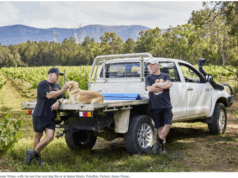The story of biomedical engineer, Jacqui Savage
Photo credit: Josh Robenstone
Problems, problems, everywhere you look problems and not enough trained problem solvers. Problems at the cafe across the road from Melbourne’s Swinburne University where 28-year-old Jacqueline Savage has allocated herself one hour to tell the story of how she became the first person in the world to design a life-saving medical sensor and the wait staff won’t let you have a quiet booth unless you’re ordering food.
Problems with Google Maps not showing road works. Problems with trains running late. Problems with your friends not being in your class at school, with being a teenager and wondering what to do with your life, with falling off your horse and not being able to get back on because your back was broken, with burning out because you were working 17 hour days without a day-off for six months. Problems seven years ago going into hospital every Friday, sitting with your best friend, watching her die of haematological cancer before her 21st birthday and asking what can I do to help?
Jacqui is an engineer. She’s a motivational speaker, a lecturer, the director of MedCorp Technologies, the company she set up to make revolutionary medical products. Her flagship product is a wearable, non-invasive, wireless adhesive patch, about the size of a 50 cent coin, that measures your core body temperature from the surface of your skin and sends that information to a phone. It sounds simple but until now no one in the world has been able to crack the challenge of measuring the temperature inside your heart without putting something into your heart. It was voted Top 100 Global Engineering Innovations by NASA Tech Briefs, and Jacqui was voted top entrepreneur at last year’s Telstra Business Women’s Awards.
The din of vacuous café music and the clinking of cutlery scooping up smashed avo creates an infantile atmosphere at odds with the gravity of Jacqui’s work. But one problem has been solved: a successful negotiation has led to a table by the window. It looks across the road to a glass-fronted testing facility called the Factory of the Future, inside Swinburne’s Advanced Technologies Centre, where Jacqui’s technological breakthrough happened a year ago. Clinical trials costing millions of dollars start soon. “It’s a big pressure and it’s all riding on me,” Jacqui says, her voice without a hint of pressure. She trusts her results. There’s nothing like knowing you’ve got the winning ticket to settle the nerves…
Read the full story here



